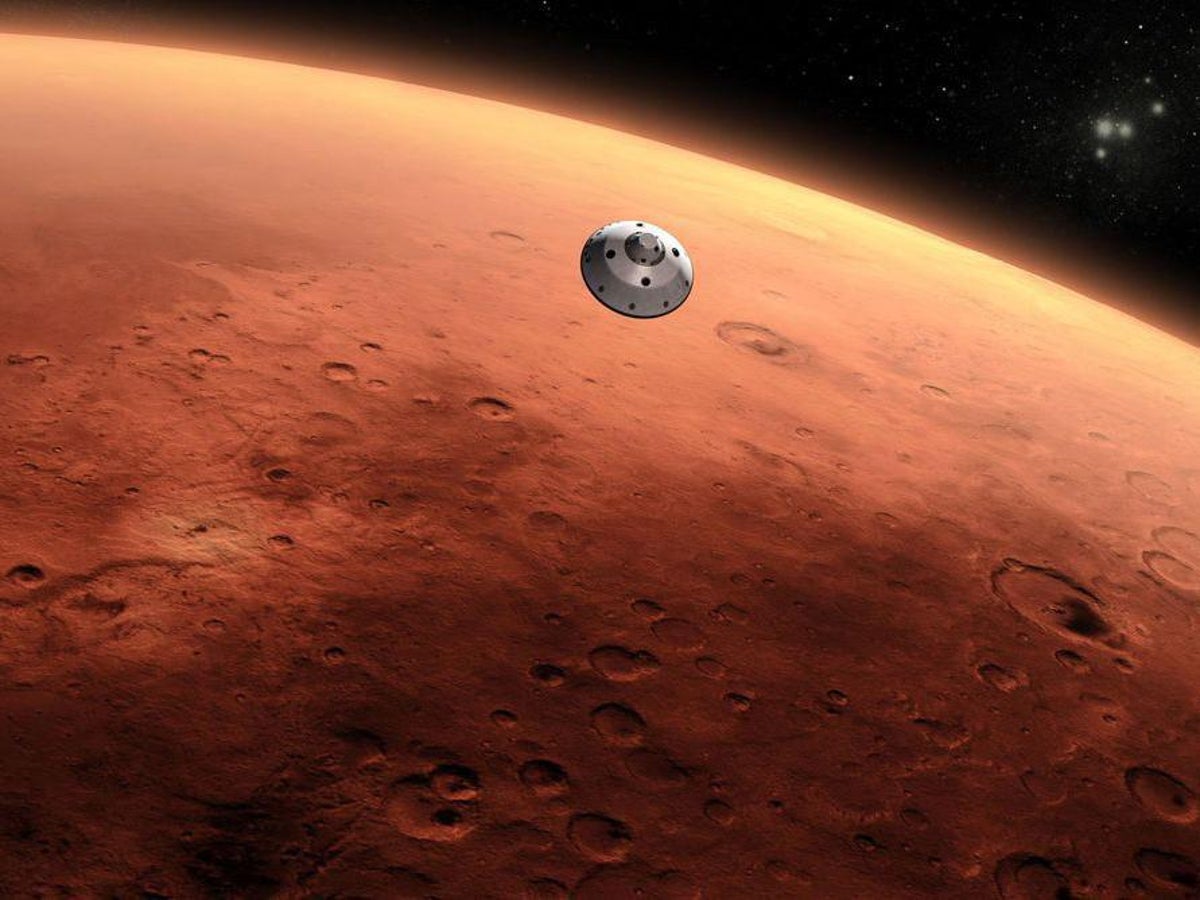Can we not do the whole the rotat8ng ring artificial gravity yet?
Like. Why are we not doing this? Can we not do this?
If you haven’t noticed, the space stations we do build require international cooperation and are basically just a bunch of rocket sections stuck together. The ISS, in all of its glory, took years to assemble and has some serious design constraints.
A project of that magnitude would require lots of highly specialized parts to be launched into orbit first, or, we somehow manage to build an entire fabrication facility in orbit where it can process raw materials.
The concept of a rotating ring is simple. Developing the means to build it is hyper-complex.
Not THAT complex. They already have several prototypes they’re planning on testing. They won’t be giant rotating stations, but rooms of a few meters across. It doesn’t take much rotation to get useful amounts of g’s.
Not THAT complex.
How hard could it be? It’s not like it’s rocket science or anything.
“You can’t protect them from galactic radiation using shielding, but as we learn more about renal biology it may be possible to develop technological or pharmaceutical measures to facilitate extended space travel.”
I wonder why
If you’re asking about the shielding, probably the mass required for materials that are generally used for radiation shielding. If the craft is built terrestrially, the amount of energy necessary to launch would be insurmountable with current chemical rockets.
Now, if the craft were manufactured in space (and forming of the shielding materials were practical in low-G), the problematic materials could be shuttled up over time, making it a non-issue. This would, of course, also mean that the craft could not be used for re-entry and would require landing craft. And there’s all the logistics challenges (supplying air, etc). Probably though the direction that will be necessary for long-distance space craft.
Imagine the Co2 released just to get to a space station.
Despite the downvotes, you do make an important point. In order for space travel to be feasible, efforts are needed to mitigate and reduce the environmental impacts of chemical rockets. For cargo, it could be possible to use electromechanical means of propulsion that may involve acceleration before what a human body is capable of.
Best would likely be a space elevator powered by nuclear and/or renewables. This could greatly reduce the amount of pollution involved in transiting between the Earth and orbital positions.
Plants consume CO2. As CO2 levels increase in the air, plants grow more photosynthesizing material to take advantage of the resource.
So the monied overlords can escape the mess they made, likely.
I think it’s more so they can give false hope to humanity while they continue squeezing the life out of the planet.
Why not both, or more?
They’ll die in luxurious insulated compounds of old age before anyone gets to Mars.
Maybe!
Why not send a bunch of pigs to the moon and see if they adapt to microgravity after a few generations then see if any adaptations are usable.
I don’t know that Law Enforcement possess the skill and know how to establish a settlement on their own but I like your thinking, friend!
lmao could also make a great reality tv show: “Moon Pigs”
When pigs fly…
This kind of thinking is the reason we even have to think about moving to Mars as opposed to improving the life on this planet. People seeing themselves as gods and enslaving every creature and thing in sight, resulting in catastrophes like global warming and extinctions.
Spending any resources trying to colonize another fucking planet, while we continue to render ours uninhabitable is so fucking stupid. How about we re-learn how to live in balance with natural systems here, and then try and terraform another planet from scratch?
The same argument existed since the beginning of space exploration, if we, as a species would have heard those arguments, we wouldn’t have satellite today, and all the other advances space exploration brought.
We haven’t tried to colonize anywhere though, and arguments against colonization are still relevant. The advances you mention all happened without attempting to colonize anywhere.
we have permanent habitation in space tough, and an absurd load of scientific advance has been made in the ISS.
Trying to raise a child before retiring is stupid for the same reason. Yet here we are not waiting to organize our lives into serial convenience.
I once met someone who said that it’s a pipe dream to think we could have equality between races before we had equality within the same race, and that we should make sure that there aren’t any poor white people before we start worrying about PoC.
These two projects build on each other. Furthermore, each has a minimum time that no amount of researchers working together can push us below. To say we shouldn’t do one because we haven’t done another only serves to reveal your ignorance.
Hey I like SciFi too, but we have pressing issues right here on the only planet we know for a fact that can support life. If we get that fixed, we have until the sun explodes to figure out terraforming other planets. The bottom line is that one issue has a looming deadline, and the other does not. It’s a misallocation of resources to entertain the latter before solving the former. Reminds me of a Vonnegut quote I read the other day: “another flaw in the human character is that everybody wants to build, and nobody wants to do maintenance.”
Of all the resource- wasting human activities, why should we cut spacefaring? Can’t we start by dismantling AI, cosmetics, golf courses,… and then if some last minute precious resources are needed we can talk about not going to space?
To me, colonizing another planet is not about expanding or moving the human race somewhere else. It’s a backup plan. Right now, our entire species exists all on this one planet. There is a non-zero chance that we could all be eradicated in an instant by a sufficiently large asteroid or comet, or by nuclear war. There is no backup for the human race or any other species on earth. Once we have a colony, we greatly increase our likelihood of surviving the end of the world. I think that’s worth investing in, and we should bring as many species with us as possible. For all we know our planet may be the only oasis of life in the galaxy or even the universe. Didn’t you think we should have a backup?
Do we actually know how to build a self-sustaining colony? Last I heard, we still had fundamental science and engineering questions to be solved even if we suddenly had an unlimited budget.
Things that come to mind include building a sustainable closed ecosystem, figuring out a long-term power source (is there uranium on Mars? Nuclear reactors run for a long time, but we can’t rely on fresh fuel rods being shipped from Earth), and planning for enough industrial base that things like mining the necessary uranium, digging tunnels, housing construction, etc aren’t colony-ending problems.
Yes, all of those challenges are excellent reasons to be pursuing colonization.
Solving these problems however will directly benefit us here on Earth. Figuring out a closed sustainable ecosystem with a long term power source would have huge implications for technological development.
I’m wondering how depletion of the ozone may contribute to kidney failure. Seems we have high incidences of ESRD in my tiny community, but then, plenty of unhealthy diets abound, resulting in diabetes, high BP (which absolutely causes kidney failure, left untreated, and many of my neighbors struggle), bad teeth, substance use disorder, etc.






